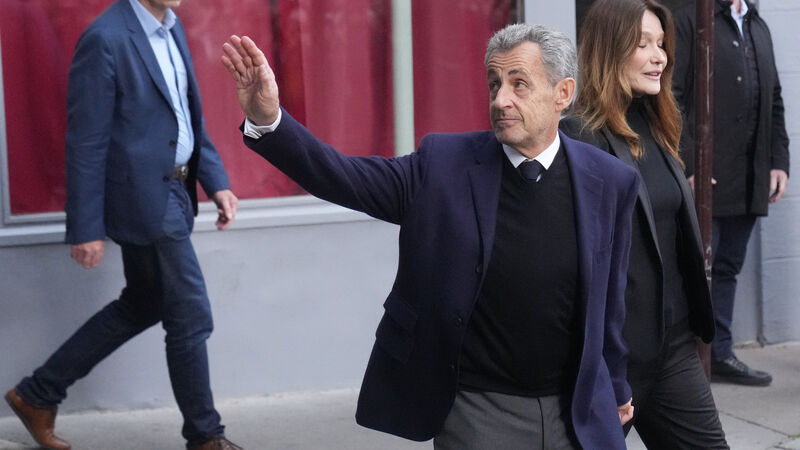Ex-French president Sarkozy to be released less than three weeks after beginning five-year sentence

Former French president Nicolas Sarkozy and his wife Carla Bruni-Sarkozy before he was jailed (Thibault Camus/AP)
A Paris appeals court has decided to release former French president Nicolas Sarkozy from prison and place him under judicial supervision.
Monday’s announcement came less than three weeks after Sarkozy began serving a five-year sentence for criminal conspiracy in a scheme to finance his 2007 election campaign with funds from Libya.











